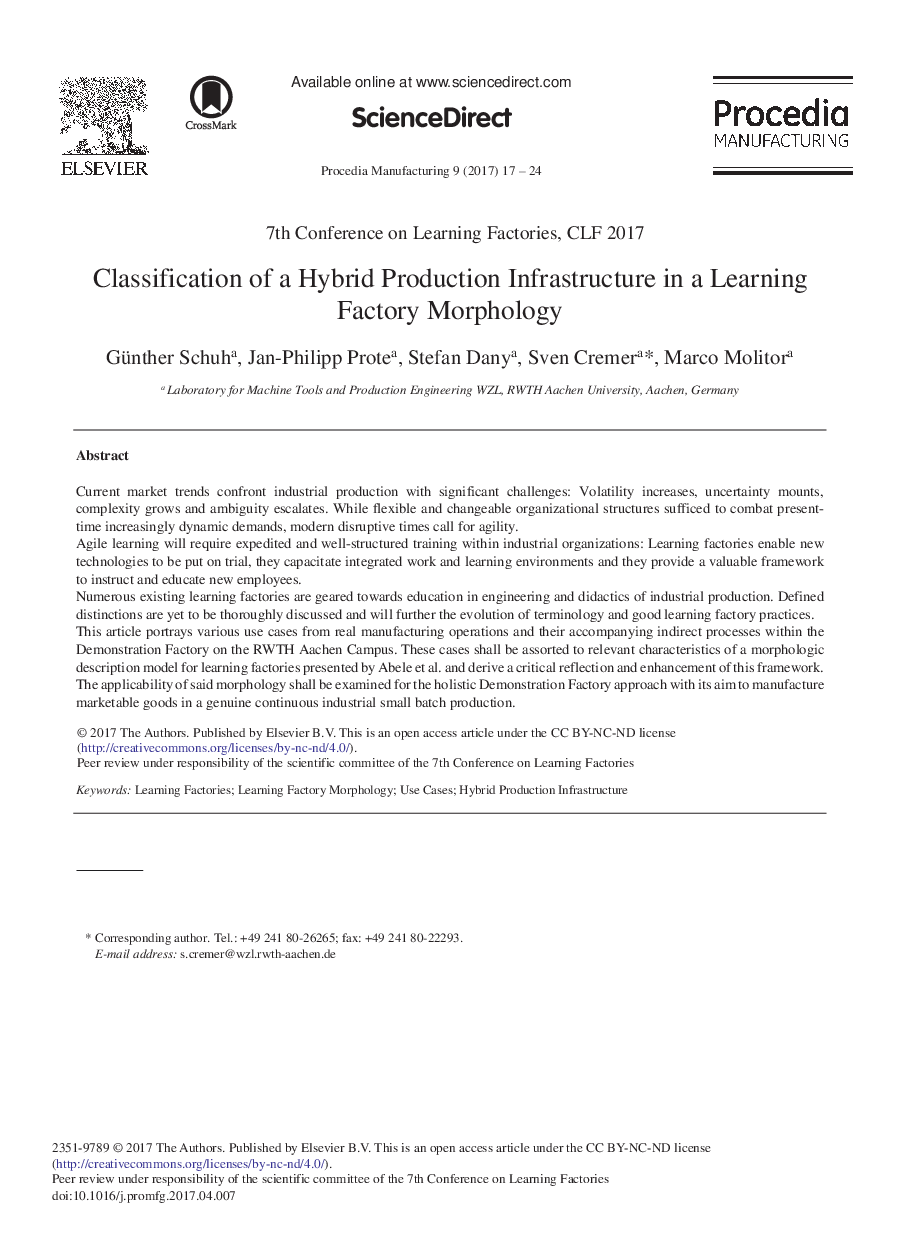| Article ID | Journal | Published Year | Pages | File Type |
|---|---|---|---|---|
| 5128850 | Procedia Manufacturing | 2017 | 8 Pages |
Current market trends confront industrial production with significant challenges: Volatility increases, uncertainty mounts, complexity grows and ambiguity escalates. While flexible and changeable organizational structures sufficed to combat present-time increasingly dynamic demands, modern disruptive times call for agility.Agile learning will require expedited and well-structured training within industrial organizations: Learning factories enable new technologies to be put on trial, they capacitate integrated work and learning environments and they provide a valuable framework to instruct and educate new employees.Numerous existing learning factories are geared towards education in engineering and didactics of industrial production. Defined distinctions are yet to be thoroughly discussed and will further the evolution of terminology and good learning factory practices.This article portrays various use cases from real manufacturing operations and their accompanying indirect processes within the Demonstration Factory on the RWTH Aachen Campus. These cases shall be assorted to relevant characteristics of a morphologic description model for learning factories presented by Abele et al. and derive a critical reflection and enhancement of this framework. The applicability of said morphology shall be examined for the holistic Demonstration Factory approach with its aim to manufacture marketable goods in a genuine continuous industrial small batch production.
